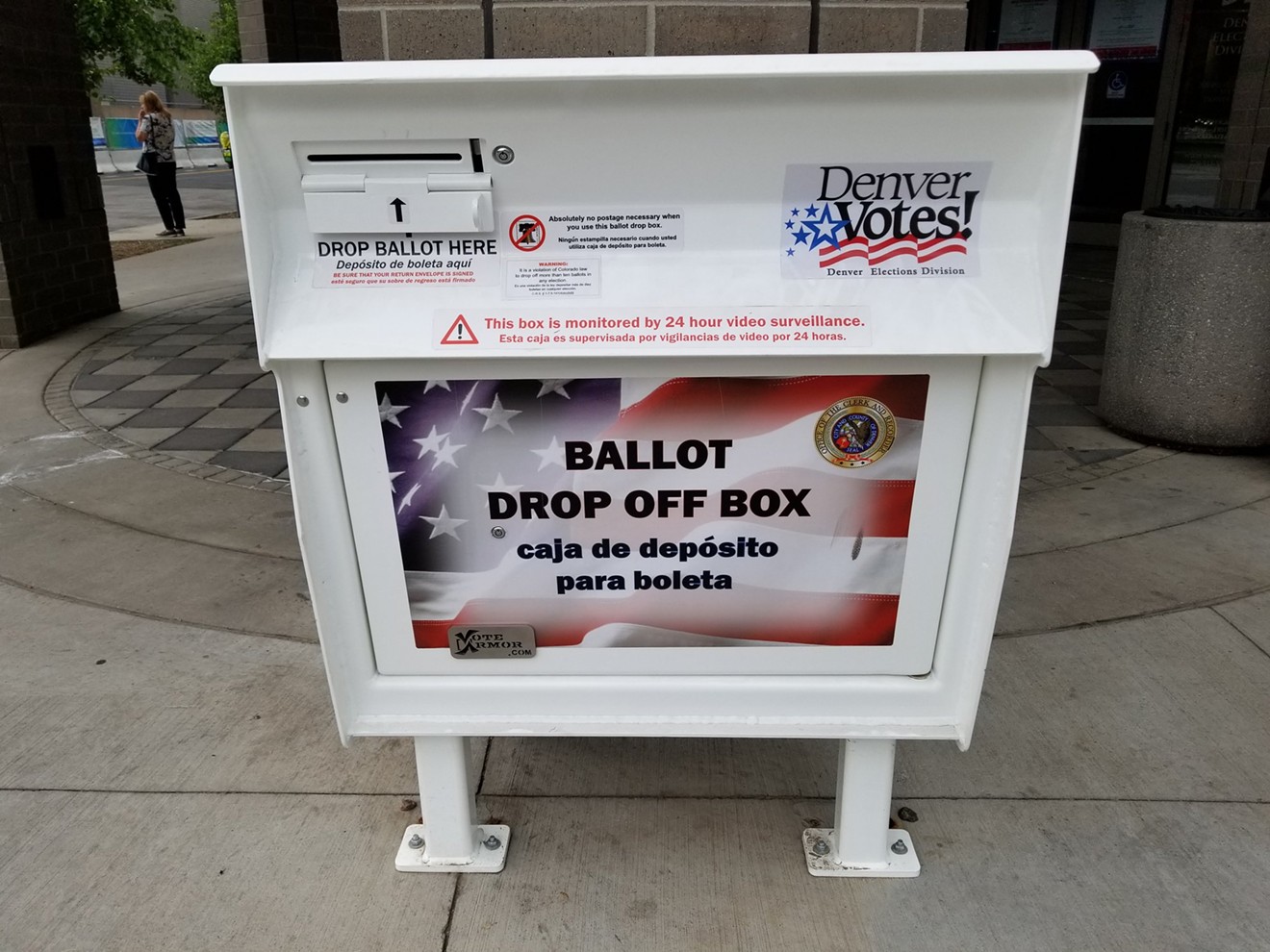Although rumors of voter fraud, particularly connected with mail-in voting, keep flying, a new study by the American Statistical Association, an 180-year-old professional organization for statisticians, finds little evidence of such problems.
“We looked at twenty years of reported cases of voter fraud, and we found no evidence that fraud was more common in vote-by-mail states,” says Jonathan Auerbach, a co-author of the study. Instead, the researchers found that vote-by-mail states — states where many or all voters receive their ballots by mail — have reported fraud rates that are statistically similar to those of other states.
Those are important findings in a year when so many states that had not previously used vote-by-mail ballots introduced them because of COVID-19 pandemic concerns. An estimated 80 million voters received their ballots by mail this election, nearly triple the number that did in 2016, the ASA report notes.
Here in Colorado, where the State Legislature approved all-mail elections in 2013, more than 99 percent of voters cast their votes by mail in the 2020 state primaries, according to Paul López, Denver’s clerk and recorder.
“The way we’ve been voting (in Colorado) over the past seven years survives the pandemic because it is mailed to you and you can drop it off at a dropbox that’s secure, or you can mail it back without ever coming into contact with anybody,” López says. “Our model’s resilient to threats from foreign interference to weather to public health pandemics.”
The ASA determined that the switch to vote-by-mail has had a negligible effect on instances of voter fraud in Colorado. The state has had only nine reported cases of voter fraud since 2013. Had Colorado not switched to the vote-by-mail system, the report estimated that the state would have had just one fewer case of voter fraud reported.
The study's conclusions look even better for vote-by-mail in the State of Washington. Had the state not gone to vote-by-mail elections in 2005, it would have seen eighty more cases of voter fraud, the ASA says.
The ASA study analyzed data from two voter-fraud databases: the News21 Election Fraud database for years 2000 through 2012 and the Heritage Foundation Election Fraud database for years 2013 through 2020, both of which list reported cases of voter fraud in all fifty states. Ideally, Auerbach suggests, the ASA study will prompt other academics to launch similar projects.
And perhaps other states will adopt all-mail elections.
Colorado is one of five states that automatically mails ballots to voters every year. The switch to a vote-by-mail system was advertised as a way to boost voter participation, and so far, it's delivered on that promise. The Colorado Secretary of State’s Office reports that since 2013, voter participation rates have increased by 9 percent statewide. Broken down, those rates have increased 13 percent among the state’s Black voters, 10 percent among Latino voters and 16 percent among voters ages 18 to 30.
This year, the state is looking at a record return of ballots, whether by mail, through dropboxes or in person. More than 2.5 million people in Colorado have already voted, and ballots will be accepted up until 7 p.m. November 3.
Over the last seven years, county clerks have been fine-tuning their systems for Colorado’s vote-by-mail approach, López says. Denver, Arapahoe and Adams counties, for example, instituted a curbside ballot pickup option during the pandemic, allowing those who needed a replacement ballot to visit a designated site and receive one curbside.
“We don’t want to leave anybody out," López says, "and amidst the pandemic, it forces us to get creative."
While the ASA study assessed past elections, it did not make predictions for the upcoming election, but it did acknowledge that some unique hurdles have come into play this year, including the political climate, the capacity of the U.S. Postal Service and some states’ lack of experience with the vote-by-mail system.
Even so, Auerbach says, “I would challenge people who think voter fraud is rampant when people vote by mail to tell us where they want us to look. We looked everywhere. So far, we couldn’t find anything.”
[
{
"name": "Air - MediumRectangle - Inline Content - Mobile Display Size",
"component": "12017618",
"insertPoint": "2",
"requiredCountToDisplay": "2"
},{
"name": "Editor Picks",
"component": "17242653",
"insertPoint": "4",
"requiredCountToDisplay": "1"
},{
"name": "Inline Links",
"component": "18838239",
"insertPoint": "8th",
"startingPoint": 8,
"requiredCountToDisplay": "7",
"maxInsertions": 25
},{
"name": "Air - MediumRectangle - Combo - Inline Content",
"component": "17261320",
"insertPoint": "8th",
"startingPoint": 8,
"requiredCountToDisplay": "7",
"maxInsertions": 25
},{
"name": "Inline Links",
"component": "18838239",
"insertPoint": "8th",
"startingPoint": 12,
"requiredCountToDisplay": "11",
"maxInsertions": 25
},{
"name": "Air - Leaderboard Tower - Combo - Inline Content",
"component": "17261321",
"insertPoint": "8th",
"startingPoint": 12,
"requiredCountToDisplay": "11",
"maxInsertions": 25
}
]












